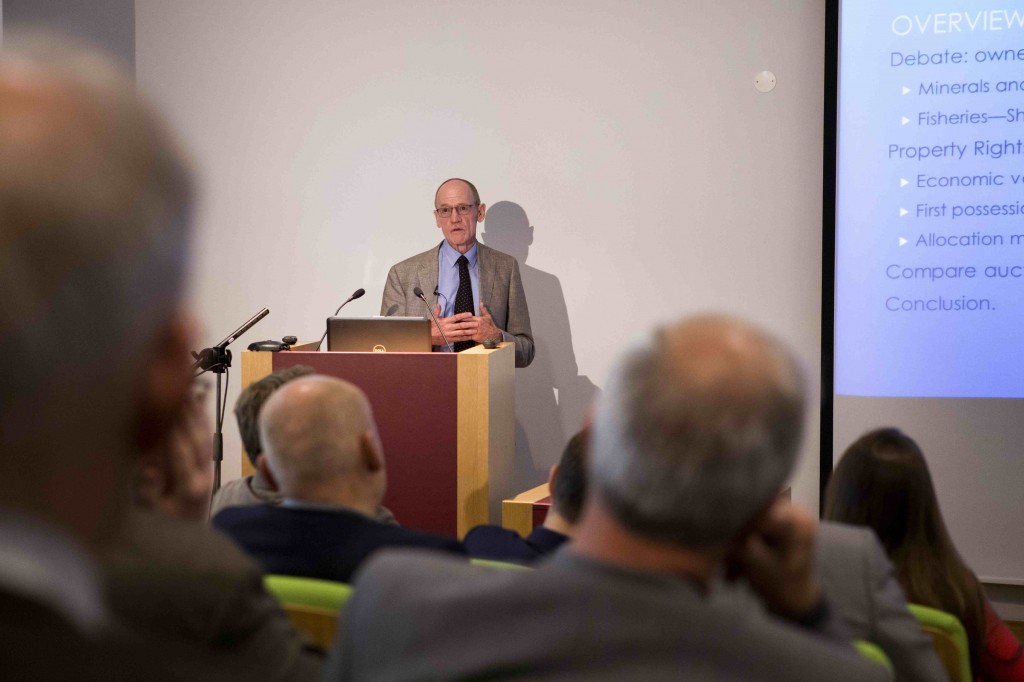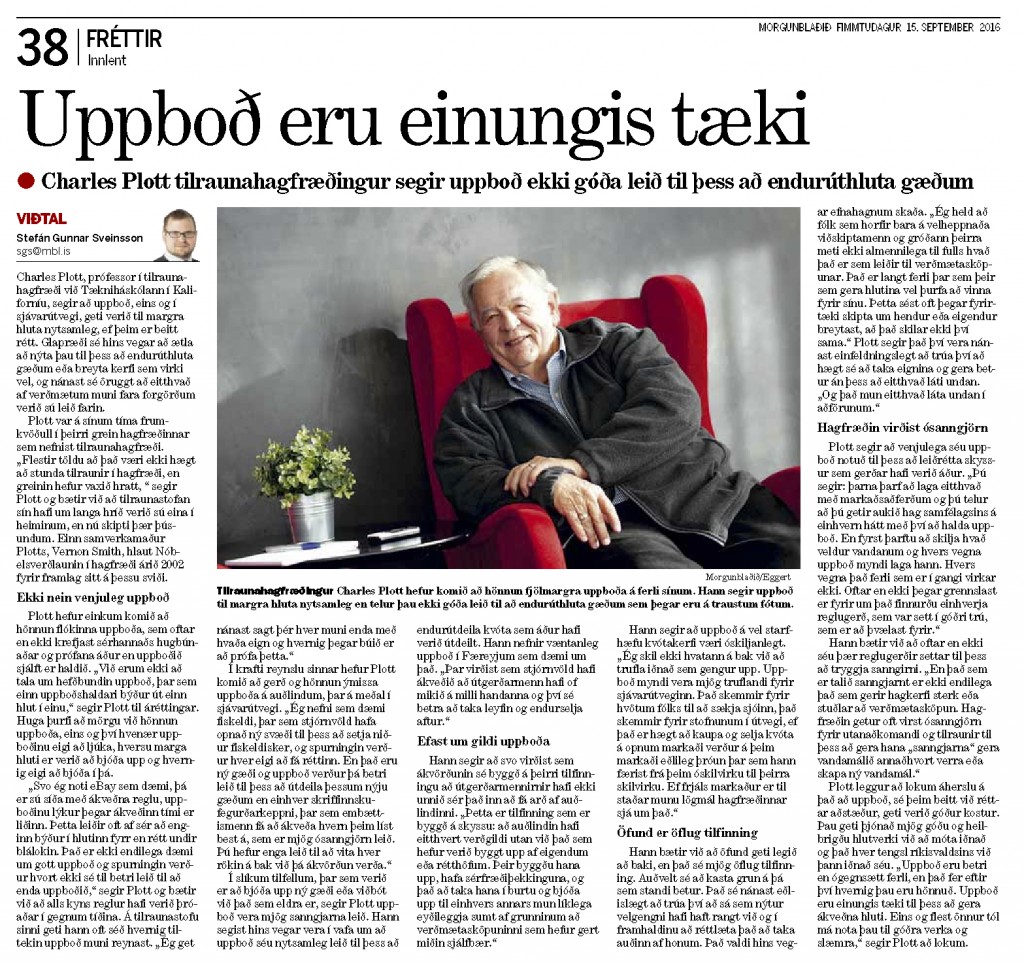Auctioning off catch quotas in the Icelandic fisheries is both unnecessary and ill-advised, as the Icelanders have already developed an efficient system there. Two international experts on natural resources and auctions agreed on this at an international conference on rights allocation in the fisheries, organised by the Economics Faculty of the University of Iceland, RNH and RSE 29 August 2016. Professor Gary Libecap of the University of California at Santa Barbara, author of many books on resource management, described the tragedy of the commons in the fisheries: Open access led to increased fishing effort, until all profit had been dissipated. It was necessary to limit access, and the most natural way of doing it was to allocate fishing rights to those who were already harvesting fish, on the basis of catch history (grandfathering). Then the necessary change from an open-access regime to a system of exclusive rights takes place in a peaceful and gradual manner. The Icelandic system of individual transferable quotas, ITQs, was a market solution, whereas public auctions of fishing rights had not been successful in the few places where they had been tried. In the panel discussion, Professor Charles Plott of the California Institute of Technology, a renowned specialist on auctions, pointed out that in Iceland an efficient system of harvesting fish was already in place, the system of individual, transferable quotas, and that therefore it was not necessary to change it. Sometimes auctions of scarce goods made sense, but not in this example.
In his lecture, Ragnar Arnason, Professor of Fisheries Economics at the University of Iceland, argued against three common misconceptions of the fisheries: 1) that the fisheries profit (or resource rent) was derived from the resource alone, and not created in any way by the fishing firms; 2) that the holders of catch quotas were the only ones who profited from the system of exclusive rights; and 3) that a resource tax, imposed directly or indirectly on the fisheries, would not reduce the total fisheries profit. In addition to Professor Plott, the panelists discussing the papers were Dr. Tryggvi Thor Herbertsson, economist and former Member of Parliament, Helgi A. Gretarsson, Associated Professor of Resource Law in the Faculty of Law, and Hannes H. Gissurarson, Professor of Political Theory in the Faculty of Politics, and the author of a recent book brought out by the University of Iceland Press, The Icelandic Fisheries: Sustainable and Profitable, also available on the Internet.
 The conference was well-attended and well-reported in the Icelandic press. Morgunbladid published 30 August an account of the lectures given by Gary Libecap and Ragnar Arnason, and 15 September an interview with Charles Plott. “I do not understand why people would try to meddle with a successful industry,” Plott said. “Auctions would be very disruptive for the fishing sector. They would reduce the incentives to harvest fish efficiently; they would harm the institutions in the fisheries. Ef you can buy and sell quotas in an open market, then things will take their normal course and quotas will be transferred from the less efficient to the more efficient.” Plott also discussed examples where auctions would make sense. The participation by RNH in the conference formed a part of the joint project with AECR, the Alliance of European Conservatives and Reformists, on “Europe, Iceland and the Future of Capitalism”.
The conference was well-attended and well-reported in the Icelandic press. Morgunbladid published 30 August an account of the lectures given by Gary Libecap and Ragnar Arnason, and 15 September an interview with Charles Plott. “I do not understand why people would try to meddle with a successful industry,” Plott said. “Auctions would be very disruptive for the fishing sector. They would reduce the incentives to harvest fish efficiently; they would harm the institutions in the fisheries. Ef you can buy and sell quotas in an open market, then things will take their normal course and quotas will be transferred from the less efficient to the more efficient.” Plott also discussed examples where auctions would make sense. The participation by RNH in the conference formed a part of the joint project with AECR, the Alliance of European Conservatives and Reformists, on “Europe, Iceland and the Future of Capitalism”.




